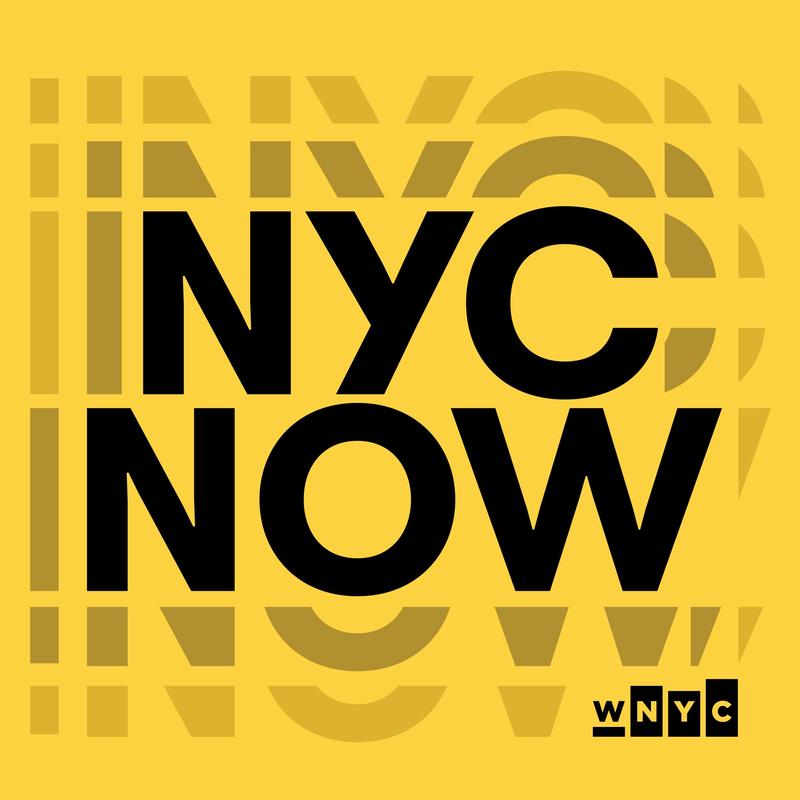November 27, 2024: Evening Roundup

[music]
Announcer: Listener-supported WNYC Studios.
Jared Marcelle: Welcome to NYC NOW, your source for local news in and around New York City from WNYC. I'm Jared Marcel. A federal judge says New York City failed to improve dangerous conditions at Rikers Island Jail despite a legal agreement made nine years ago. Judge Laura Taylor Swain found the city in contempt, citing 18 areas where it fell short, including rising rates of use of force by staff and inmate deaths in custody. So far this year, at least five people have died at Rikers Island, according to the Vera Institute of Justice. In September, the judge warned city officials to prepare for a federal takeover of the jail. Now, she's asking all sides to come up with solutions in the next few weeks.
A city employee is facing charges of assault, reckless endangerment, and fleeing the scene after police say she hit three cars and dragged someone in Bed-Stuy Tuesday evening. The 40-year-old NYCHA worker allegedly collided with another car around 6:00 PM at Gates Avenue and Marcus Garvey Boulevard. When the driver of that car tried to catch her, officials say she drove away, dragging that person several feet before hitting another car with a pregnant woman inside. Police say the driver then hit a third empty car. She was arrested shortly after. No one was seriously hurt. Information for the driver's lawyer is not yet available.
Up next, for those of us visiting family outside the Big Apple or hosting out-of-town relatives this Thanksgiving, there's a chance you might face some unsolicited trash talk about life in New York City. How to handle those conversations after the break.
[music]
Announcer: You're listening to NYC NOW.
Jared Marcelle: Thanksgiving dinners can get tense, especially when out-of-town relatives start criticizing New York City, from the high cost of living to its tiny apartments. WNYC's David Furst spoke with etiquette expert Nick Leighton, co-host of the podcast Were You Raised by Wolves? about how to navigate these critiques while keeping the dinner table civil.
David Furst: Your Gothamist article this week is about how to deal with friends and family trashing the city. Is this topic a little personal for you?
Nick Leighton: [laughs] Maybe? Yes. I am a New Yorker. I've been here since I was 18, but I do have a hometown, and I do go back to that hometown and I do hear things about New York City, and I don't love it.
David Furst: You hear things. Okay, what kinds of things do you consider rude?
Nick Leighton: Well, you know, there's a lot of people, I think if you don't live in New York City, you just don't know. You don't get it. Even visiting New York is a very different experience than living here. It's really hard to articulate why we want to live here. It is very common to hear from relatives like, "Oh, why do you live in New York City? It would be so much better in insert place name here." If you don't know, you don't get it. I mean, what do you say to that?
David Furst: What are the most typical things you hear?
Nick Leighton: Price. Cost. Everything in New York City is more expensive. I don't discuss price with my family back home of anything. I mean, if they knew what a cocktail costs in New York City, it would blow their minds. We just can't discuss what things cost. I think the cost of living in New York City, yes, it is high. People who don't live here, and if they visit, they are shocked.
Another things people talk about is that New York City is not a great place to raise your kids. I think it's a real cool place to raise kids because just think of all the experiences that you can offer, but you cannot argue with people on that point. I think, to that, you just have to say, like, "Fair enough," and we're going to change the subject.
One of the things that actually drives me bonkers is when people say that New Yorkers are rude, and that's just not true. I think New Yorkers are actually some of the friendliest and nicest people who will jump in and help at a moment's notice, but we also do a great job of just minding our business. I think if you're not from New York, you're not used to that sort of dichotomy. I think if you came to New York, you may not realize that we have different etiquette.
All etiquette is local. You might have gotten yelled at by somebody if you held open a restaurant door in the middle of winter and you just let all this cold air in, or you stepped up to the front of a deli counter and you weren't ready to order, or you were walking three by three on a narrow sidewalk of the Bliss Village and you're blocking everybody. Yes, some New Yorker is probably going to say something a little direct to you about getting out of the way.
David Furst: What makes it so grating to you to hear some of these comments?
Nick Leighton: Well, it's judgmental because, basically, what you're saying is, like, you have bad judgment for deciding to live in New York City because you can have a washer dryer in your house, imagine, but you have decided to use bad judgment and, therefore, you have to go to the basement to do your laundry or send it out.
David Furst: All right, washer and dryer. That doesn't sound too cutting. What's the worst one? What stands out above all others?
Nick Leighton: Well, I think one that I think is probably a little true is that our airports are hard to get to and are chaotic and horrible. I mean, LaGuardia actually has gotten much better, but it's still hard to get to. There's no air train to LaGuardia. I think it's the apartments are small. I think that's the one that really grates on me because, to me, New York City is my living room. New York City is my kitchen. My apartment is just sort of where I sleep and where I keep my stuff. I think it's not important for me to have this enormous big mansion. 20 bedrooms, 2-story atrium, foyers, horse paddock outback, lake. It's fine to have a small apartment.
David Furst: Well, that's a great way to put it. Now, we all need to chill out a little bit over the holidays. What is your biggest advice to anyone who knows they're going to get grief for just living in New York City?
Nick Leighton: Well, you gotta pick your battles. Is this the hill you want to die on? Often, it's just better to keep it light, keep it polite, and I guess realize, if you're a true New Yorker, we don't really care what other people think about New York City. We don't really care. It's fine.
David Furst: Not caring is the ultimate revenge.
Nick Leighton: Yes. I mean, don't move here. What's great about New York is that, for the most part, only people who want to be here are here. If you don't want to be here, you're just going to leave, and so that's fine. That's kind of how it's always been. There are plenty of other people who will be happy to take your place. I say at this Thanksgiving dinner, when somebody criticizes New York, just let it go, smile, nod, and just be thankful that this is just once a year.
David Furst: All right, and dare I ask, what about the other side of this discussion? All of those New York City guests and hosts who say they simply can't imagine living anywhere else, even when the table is packed with guests from out of town.
Nick Leighton: Oh, that's fair game, because, I mean, New York City, greatest city in the world. I think we're allowed to be proud. Yes, go for it. If you're on our turf, if you're in New York City, then yes, home rule advantage.
Jared Marcelle: That's Nick Leighton, co-host of the podcast Were You Raised by Wolves? in conversation with my colleague, David Furst. 'Tis the season for food, family, and friends. WNYC's community and partnership desk is asking New Yorkers to share stories behind their favorite family recipes and the memories they bring to life. Kelly Jean Fitzsimmons lives in Astoria, Queens. We talked with her as part of a collaboration with the Queens Memory Project.
Kelly Jean Fitzsimmons: My name is Kelly Jean Fitzsimmons. I'm 47 years old, and I live in Astoria, Queens. Even though my last name is Fitzsimmons, my mother is Sicilian. I grew up much more with the Italian culture and traditions. I always think of what my mom calls vignolotti, which I don't know the proper spelling of, but it's these little tiny dough balls. You would make a big mound of dough and then roll them out into little almost worm-like shapes and cut them up to little nuggets and kind of fry them up and then pile them all in a plate and you cover them with honey and then bits of chocolate and bits of nuts and little tiny rainbow sprinkles.
I both loved it because I love the process, but I also thought they were kind of gross. It just would stick together and get really hard to pull them apart, but it's something I always associated with Christmas, just the activity of making them. My mom used to always kind of slap my hand away because I just wanted to eat the toppings and instead of putting them on top.
What made me think of the vignolotti is I think it's more important kind of the preparation or bringing people together with the food than the product itself. I mean, those are the ones that are always the most important to me. There was something about it, even though it was never my favorite thing to eat, it took all of us to make. That was kind of a way to bring the family together and to do something together.
My parents are older, so they have a harder time kind of joining in on all of that. I think, a lot of times, we imagine that if you can't do all of it, you shouldn't do any of it. Thinking how the really hard, laborious part was making the dough and cutting them into the pieces. If we did all that and brought it over, that my parents might have fun doing the toppings. That might be a way to find that middle ground so you don't have to let go of everything, every family tradition. Even though Christmas this year isn't going to be like any of the other years, it makes me feel like I'm able to give them back a little bit of the past.
Jared Marcelle: Thanks for listening to NYC NOW from WNYC. Just a heads up, for Thanksgiving Day and Friday, we'll release just one episode. I'm Jared Marcel. Enjoy your holiday.
[music]
Copyright © 2024 New York Public Radio. All rights reserved. Visit our website terms of use at www.wnyc.org for further information.
New York Public Radio transcripts are created on a rush deadline, often by contractors. This text may not be in its final form and may be updated or revised in the future. Accuracy and availability may vary. The authoritative record of New York Public Radio’s programming is the audio record.
